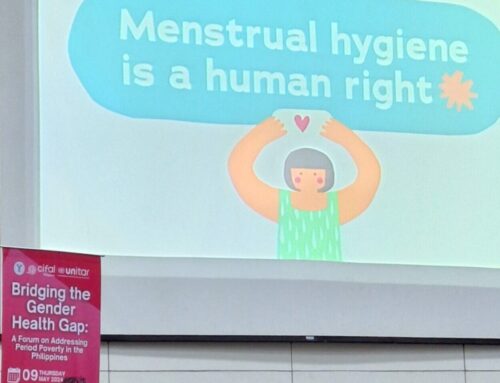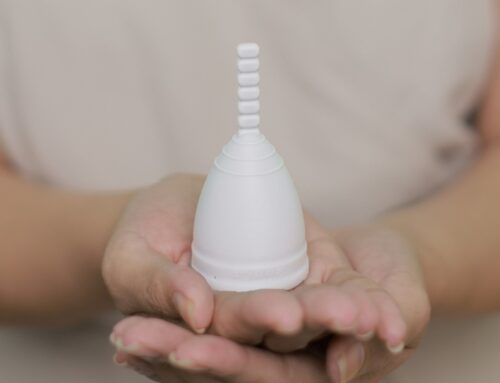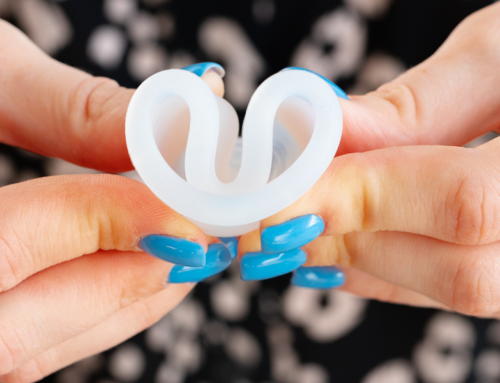In celebration of the International Day of Action for Women’s Health on May 28, 2020, Sinaya Cup organized an event via Facebook Live called “Am I Normal? A Talk on Women’s Health.”
Dr. Aura Azarcon, also known as DoktAura, was our special guest.
Here’s a summary of the topics discussed during the event:
Are all variations of menstrual cycles normal?
You should start getting worried if your period:
- Lasts more than a week
- Is too heavy that you can fill a pad or tampon with blood in just an hour or two
- Includes clots that are more than an inch in size
- Occurs every 20 days or less
- Happens again after menopause
- Has not arrived yet even if you are already more than 15 years old
- Comes only once after 45 days or more
- Stops for three years after the very first time you get your period
It is important to monitor and document your own menstrual flow, so you can easily point out any changes with it. It is also good to use a menstrual cup, through which you can accurately measure your period blood volume.
Can abnormal menstruation be a sign that other organ systems have problems?
There are many possible reasons why your menstruation is not normal. Sometimes, it can be an indication of other health conditions.
Abnormal periods can also be caused by hormones released by other organs like the brain, adrenal gland, and thyroid gland. According to DoktAura, it is important to watch your lifestyle and diet because they can influence your hormones and these hormones actually affect your menstrual cycle.
Some people may also have heavy flow due to bleeding disorders like in the case of those who have problems with their platelets.
Do heavy flows worsen anemia?
Iron deficiency anemia is common among people of menstruating age. Those suffering from this condition get too tired so easily particularly when exercising, experience fatigue, and have frequent headaches. Moreover, they look pale.
If you have this condition and your menstrual flow is heavy, you better get checked because your heavy flow can worsen it.
Is your vaginal discharge a cause for concern?
It’s normal to have vaginal discharge outside your period. Normally, it’s clear and odorless unless it’s already been on your underwear for a long time. By then, it can already have a bit of smell and color.
However, if your vaginal discharge is yellow or green and presents other signs like foul smell or itchiness, and there’s discomfort, especially when you are peeing, then you should get checked. It can be a case of trichomoniasis, a sexually transmitted disease.
There are other types of infection that you need to watch out for as well, including bacterial vaginosis and yeast infection. They are not sexually transmitted but may manifest after sexual intercourse when your vaginal acidity can be altered.
Infections like these two are normal. In fact, any changes in diet, hygiene, hormones, and even blood sugar can affect your vaginal acidity.
It is also important to refrain from washing your genitals with antibacterial soap and other products that may irritate them or kill good bacteria, allowing bad bacteria to thrive. The best feminine wash? Water.
Make sure that you seek medical attention when you notice something different down there, especially when there’s a foul odor and discomfort.
Don’t be shy, since infections such as these are more common than you imagine. It is better to get checked instead of relying on home remedies that may simply worsen your condition.
What’s dysmenorrhea and is it normal?
Dysmenorrhea is caused by prostaglandin, whose job is to make the uterus contract and make it shed blood. You should start worrying if your dysmenorrhea:
- Lasts for over two days
- Is so intense that you can no longer move or perform your daily tasks
- You are over 30 and your condition hasn’t improved yet, or it gets worse
- Does not go away even after taking meds or trying other remedies
You should also get checked if you experience pain even if your period is not yet coming.
Is intense mood disturbance before menstruation considered a mental disorder?
Yes, because there is such a thing as Premenstrual Dysphoric Disorder or PMDD. It’s different from Premenstrual Syndrome or PMS, which disappears before the period ends.
PMDD affects only 8% of women, so it’s not so common.
If the mood disturbance you experience is so overwhelming that it already affects work life, daily life, relationships, studies, seek help. Especially if it is recurrent and always happens before your period that you can already see the pattern.
Remember to always track symptoms, not just the physical ones but also mood and behavioral changes. If you have suicidal ideations, don’t hesitate to seek help.
When should your first gyne visit take place?
It should happen when you’re 13 to 15 years old and NOT when you’re already trying to get pregnant. If you didn’t start that early, it’s okay.
But, make sure that you start building a relationship with an OB-GYN, so you’ll already know someone you can trust by the time you start considering getting pregnant.
Don’t be shy. The first visit does not always require a pelvic exam. In fact, it’s a time for you to raise questions about your body, mood changes, and other things happening with your body. Even pedia and family doctors can answer your questions, so if you are still very young, they can also help you.
Besides having an OB-GYN, you should also start getting a pap smear regularly starting when you’re 21 years old even if you are not sexually active.
What is PCOS? Can you still get pregnant if you have it?
Polycystic Ovarian Syndrome or PCOS usually manifests with irregular periods, weight gain, and hair growth on certain body parts. It is caused by high levels of testosterone.
It is not true that you can no longer get pregnant if you have this condition. Lifestyle change, change in diet, regular exercise, and intake of oral contraceptives to address other symptoms can help.
It’s best to get checked and seek medical attention if you have these symptoms.
Should women aged 45 above get mammograms regularly?
Yes, although different societies have different standards on the frequency of your mammograms. It is also wise to get screened before 45 if a first-degree relative had breast, cervical, or ovarian cancer.
What if you have some of the symptoms mentioned here and you want to get checked? How should you proceed, especially now when there’s a pandemic?
First, you need to track your symptoms and look back—when did you start feeling or noticing these things? Only you know if there’s something wrong and what these signs are.
If you think there really is something wrong, try telemedicine first to find out if you need to go to the hospital or clinic. If your symptoms have to do with reproductive health, it’s best to be prepared with information about your period, as well as a list of symptoms you have experienced, so far.
What should be considered an emergency?
If you are bleeding excessively, then you should go to the emergency room. Same thing when you experience bleeding when you are pregnant or are suspecting to be pregnant.
Some questions raised by viewers were also entertained during the event. Here they are, plus the answers to them:
Is it okay to drink meds to get rid of dysmenorrhea?
Yes. There shouldn’t be a stigma about using common, over-the-counter meds.
What’s the difference between dysmenorrhea and endometriosis?
Dysmenorrhea is the pain associated with menstruation. It is normal so long as it lasts only up to the second day of menstruation. Meanwhile, endometriosis is a condition that causes extreme pain even outside the period. The pain experienced here is often debilitating.
Is mammogram expensive?
No. Online, you can see mammogram rates that are as low as Php1,500. It should not cost over P3,000.
What should be done if you’ve already lost weight but you still have PCOS?
Managing PCOS is not only about losing weight and taking oral contraceptives. It involves a lifestyle change, so the approach should be holistic. You need to follow up with your OB-GYN to find out what should be done.
How frequently should you have a pap smear?
Starting when you’re 21, you should have it every three years. However, you may be required to have it done more often if there are findings.
Final words from DoktAura:
“Kayo lang ang makakaalam kung normal to abnormal yung nararamdaman niyo… You should take control of your own health.”
List of organizations you can contact if you need medical attention
Telimed Management and Medgate Hotline: (02) 8424-1724
Globe Telehealth, Inc (KonsultaMD): (02) 7798-8000 (free for Globe/TM users) or from any landline
Healthnow.ph:
Panganiban Clinic:
Your Hotline PH – Family Planning Organization of the Philippines (FPOP):
FriendlyCare:
ManilaMed’s Healthline:
New National Center for Mental Health (NCMH) Crisis Hotlines:
- 0917 899 8727 (USAP)
- 989 8727 (USAP)
Natasha Goulbourn Foundation (NGF):
- (02) 804-HOPE (4673)
- 0917 558 HOPE (4673)
- 2919 (toll-free for GLOBE and TM subscribers)
Ateneo Bulatao Center for Psychological Services:
- 8426 5982
- bulataocenter.ls@ateneo.edu
MedMom Institute for Human Development:
- 0915 876 1234
- administrator@med-mom.com
In Touch Community Services:
- 8893 1893
- 0917 863 1136
- 0956 053 4257
Crisis Lines:
- 0917 800 1123
- 0922 893 8944
- 8893 7603
Gray Matters Psychological and Consultancy, Inc.:
- 0997 561 8778
- mhpo.online@gmail.com
About Dr. Aura “DoktAura” Azarcon
She is a medical doctor specializing in Family Medicine. She has her own YouTube channel, where she has been sharing her journey from being a medical school student to being a doctor.







